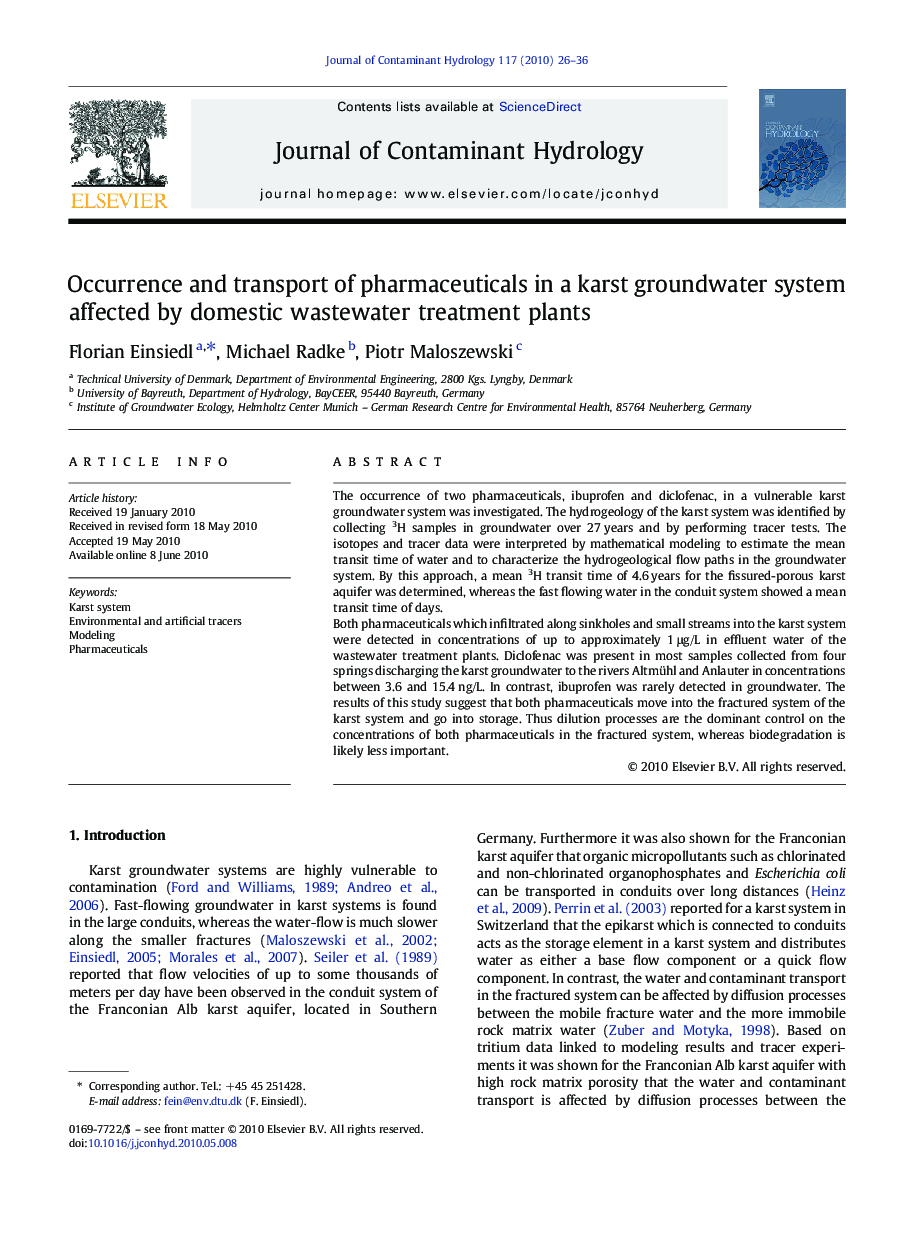| Article ID | Journal | Published Year | Pages | File Type |
|---|---|---|---|---|
| 4547075 | Journal of Contaminant Hydrology | 2010 | 11 Pages |
The occurrence of two pharmaceuticals, ibuprofen and diclofenac, in a vulnerable karst groundwater system was investigated. The hydrogeology of the karst system was identified by collecting 3H samples in groundwater over 27 years and by performing tracer tests. The isotopes and tracer data were interpreted by mathematical modeling to estimate the mean transit time of water and to characterize the hydrogeological flow paths in the groundwater system. By this approach, a mean 3H transit time of 4.6 years for the fissured-porous karst aquifer was determined, whereas the fast flowing water in the conduit system showed a mean transit time of days.Both pharmaceuticals which infiltrated along sinkholes and small streams into the karst system were detected in concentrations of up to approximately 1 μg/L in effluent water of the wastewater treatment plants. Diclofenac was present in most samples collected from four springs discharging the karst groundwater to the rivers Altmühl and Anlauter in concentrations between 3.6 and 15.4 ng/L. In contrast, ibuprofen was rarely detected in groundwater. The results of this study suggest that both pharmaceuticals move into the fractured system of the karst system and go into storage. Thus dilution processes are the dominant control on the concentrations of both pharmaceuticals in the fractured system, whereas biodegradation is likely less important.
